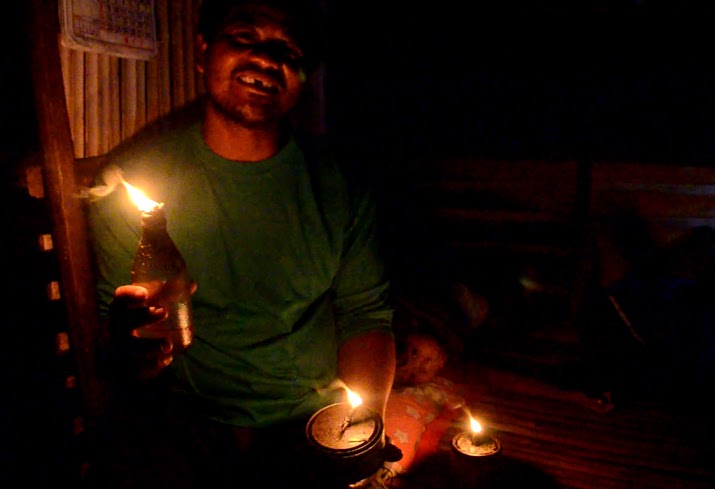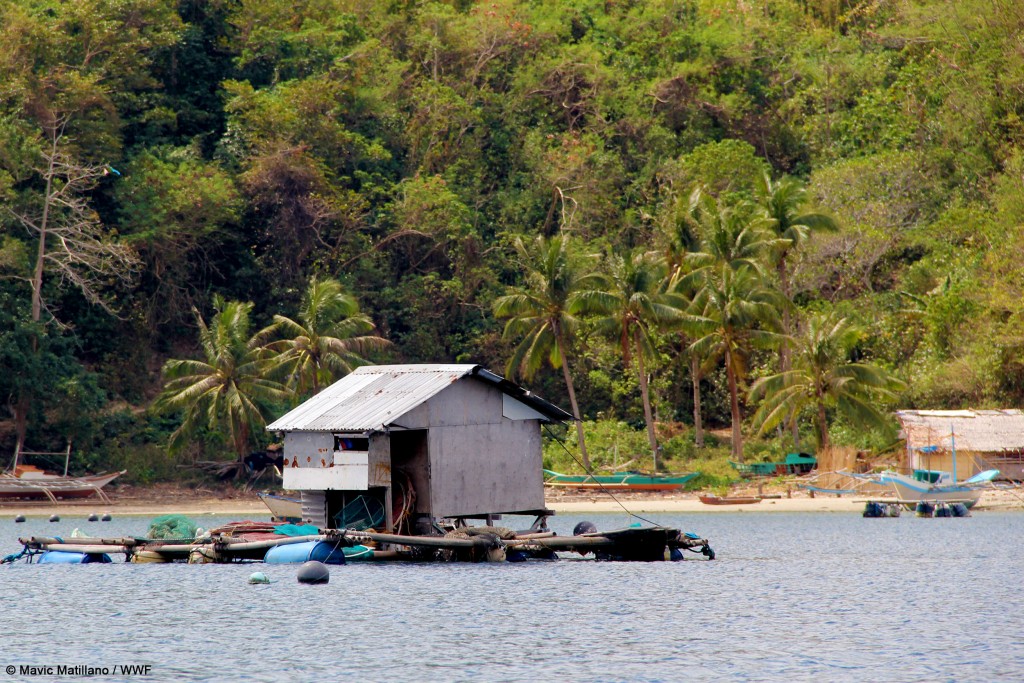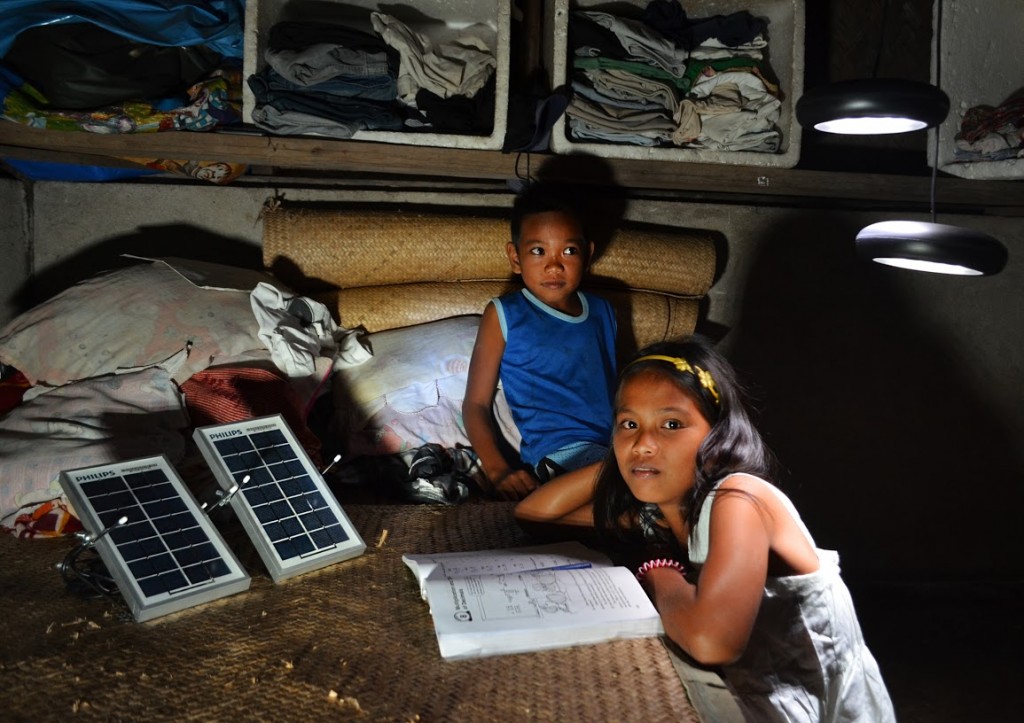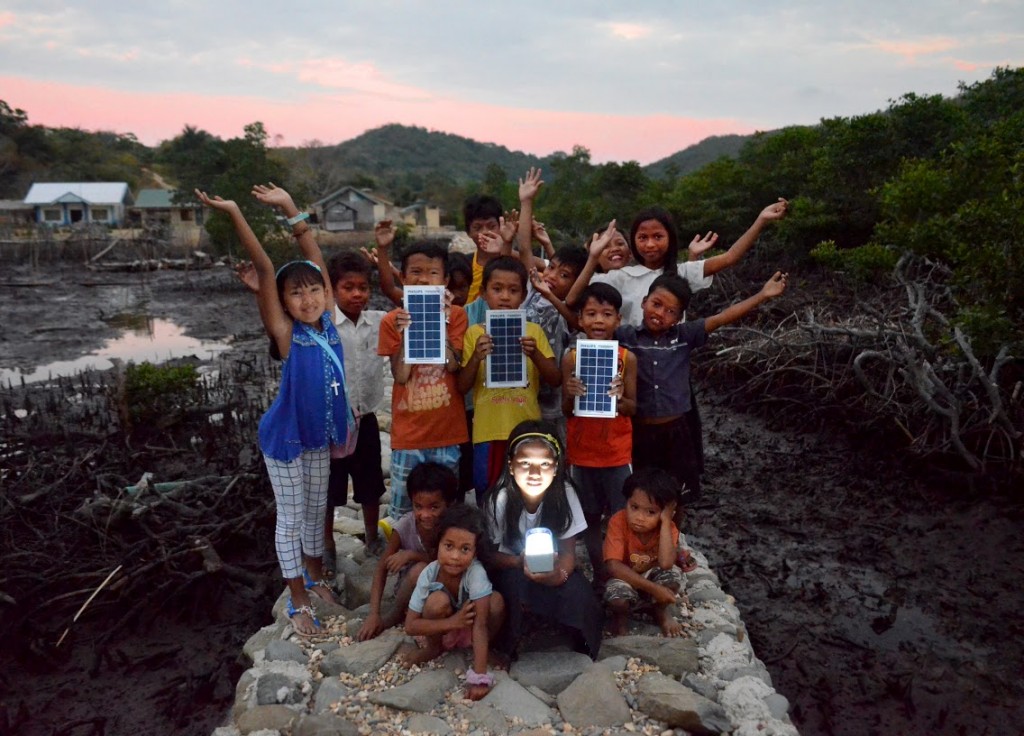
“This lamp contains crude oil,” says fisherman Joys Dominguez while raising a grimy, soot-caked gin bottle. We are inside a hut in Beton, an island community in Northern Palawan. Night has settled and our world is pitch-black, save for what the flickering flames illuminate. Outside is the sea and above it, a sea of stars.

Around 15 million Filipinos lack regular access to electricity. Beton and its 300 fisherfolk families are no different, relying on dangerous and expensive kerosene lamps to light up their homes. A few own diesel generators, used sparingly. “These lamps are expensive,” adds Dominguez. “I must earn an additional PHP150 (USD3.5) each month to buy half-a-gallon of kerosene. They are also dangerous. If a child knocks down a lamp, our house might burn down.”
Joys is a full-time fisherman, hunting skulking red groupers called Suno which fetch up to PHP6000 (USD135) per kilo in posh Asian restaurants. Beside him is his eldest, 11-year old Kyla Joy Dominguez, struggling to study by candlelight. I pause for a while and ask her how our solar lamps can help her. “I’ll be able to do my homework well every night to perform better in school. It will be a step closer to reaching my dreams.”
Crowdfunding for Light

To help families in Palawan safely and economically light up their homes, Earth Hour, a global movement led by the World Wide Fund for Nature (WWF), shall give the Dominguez family and hundreds like them portable solar lamps.
Held every last Saturday of March and originally envisioned as an hour-long switch-off to show unity against climate change, Earth Hour became one of the world’s largest crowdfunding and crowdsourcing movements in 2014. It funded dozens of projects, including the construction of fibreglass bancas in the Philippines.
This year, Earth Hour shall fund the Gift of Light. “Solar lamps rely on the power of the sun, eliminating the need to buy fuel. We’re teaching communities to veer away from fossil-fuels, the burning of which contributes to climate change,” explains Climate Change Unit and Earth Hour Philippines head, Atty. Gia Ibay.
Climate change has caused Arctic sea ice to shrink to its lowest winter extent since 1880. Philippine effects have ranged from more powerful typhoons to massive floods.
The Philippines has been championing the switch-off since 2008. A growing list of allies has pledged to support this year’s efforts, led by government partners such as the Local Government of Quezon City, Climate Change Commission, the Departments of Energy, Environment, Education, Transportation and Communications, Public Works and Highways, Labor and Employment, the League of Provinces, Municipalities and Cities, plus the Metro Manila Development Authority.
Corporate champions are led by Philips, ArthaLand, Alveo Land, Banco De Oro, First Gen Corporation, Smart Communications and McDonald’s.
Media champions include ABS-CBN, BusinessMirror, BusinessWorld, ClickTheCity.Com, Eagle Broadcasting Corporation, FleishmanHillard, FocusMedia, Far Eastern Broadcasting Corporation, Globaltronics, Jack TV, Knowledge Channel, Leo Burnett, Net-25, Orangemagazine, Pelicola.TV, Philippine Daily Inquirer, Philippine Star, QCreativs, Radyo Pilipinas, Radyo Agila, Radyo Veritas, TV5 and Wheninmanila.Com. WWF is seeking more corporate and media support.

After Beton, the project will provide lamps for the Mangyan people and forest rangers protecting the Iglit-Baco Mountain Range in Occidental Mindoro, the last holdout of the critically-endangered Tamaraw, an endemic dwarf forest buffalo.
“The Gift of Light will run for at least a year. We hope that the money Joys and other beneficiaries will save can buy basic needs like food, books and clothes,” adds Ibay. “More importantly, we hope it can give children like Kyla Joy the future they deserve.”
WWF invites you to give the Gift of Light today. Log on to wwf.org.ph/earthhour to help.








